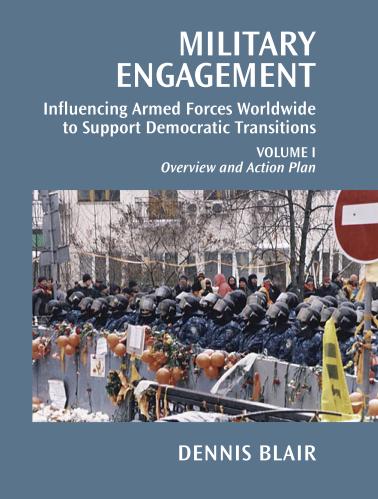Government shutdowns are bad for the country, writes Michael O’Hanlon. They hurt the economy, hurt our own people and call our capacity for leadership into serious doubt. This piece originally appeared in The Hill.
Here we go again. Just when one hoped that a unified government would preclude the possibility of a government shutdown, a combination of divisions within GOP ranks and classic Democrat-Republican divides have us yet again on the brink of a major self-inflicted wound to the nation.
Although some partisans may relish the prospect of a government meltdown that they can try to blame on the other before looming midterm elections, shutdowns are bad for the country. They hurt the economy, hurt our own people and call our capacity for leadership into serious doubt.
Moreover, at a time of acute crises from North Korea to the Middle East to Eastern Europe, this kind of silly distraction is the last thing that we can afford.
The issues are fairly easy to understand. Republicans want a big boost to defense spending; Democrats want a smaller boost, matched by comparable increases in domestic investments. President Trump wants to be tough on immigration policy; congressional Democrats and many Republicans too want to protect “dreamers” who came here underage, through no fault of their own, but now face a risk of deportation.
Then there is the question of tone and atmospherics, manifested most palpably and regrettably of late in the “shithole”-gate debate.
We need a formula that allows everyone to walk back from the brink. Competing ideas and visions for the country should be debated through normal processes, including the upcoming fall electoral campaigns, not through a game of chicken that reveals more about the inadequacies of Washington writ large than anything else.
No one seems to really be in the mood for compromise, so perhaps what is needed is a way to change the terms of debate such that everyone can claim victory to the maximum possible extent.
As such, the following set of measures might help us end the impasse:
Raise the formal caps in the Budget Control Act on both defense and nondefense spending equally, through some kind of a bridging deal like those recently negotiated twice during the Obama years. This would please Democrats.
At the same time, allow defense spending to grow beyond what those higher caps would allow through a new mechanism. This already happens to an extent through what is called the “Overseas Contingency Operations” account, which is designed primarily to fund the wars of the Middle East.
But that mechanism is not enough to respond to new challenges from North Korea, Russia and China. Therefore, recognizing the dangerous state of today’s world, we should create an additional “Deterrence Restoration Account” that would build up America’s military forces over the next few years to handle threats that do not presently involve shooting but could involve shooting in the future.
My own suggestion would be to add enough funds through this mechanism so that overall defense spending for 2018 would split the difference, roughly, between the amount recommended for defense by President Trump last spring and the higher amount subsequently legislated by the Congress. But it would be ok to allow the higher levels if necessary to get a deal.
Allow dreamers to stay in this country, while also increasing planned refugee admission targets. But also use some of the added funds for nondefense accounts that the new deal will create to fully fund President Trump’s larger budget request for a stronger southern border and tougher enforcement of future immigration.
This would allow the president to claim credibly that despite the current compromise on dreamers, there will be fewer of them in the future, since illegal immigration will be slowed.
Use some of the remaining budgetary relief for nondefense accounts to restore foreign assistance and diplomatic funding to higher levels, at or near their Obama-era norms.
This would allow President Trump to let his actions speak louder than his purported words, showing his compassion for developing countries, whatever language he might have used in the White House last week, even as he also pursues a tougher immigration policy.
The above deal should work for most issues and most everyone with the one important exception: its effects on the federal deficit. Unfortunately, rising entitlements and tax cuts have together made the country’s underlying fiscal situation less than strong.
But the spending increases outlined above will be relatively modest and should shore up the nation’s security while also potentially improving its infrastructure and other domestic investments. So the consequences will be limited. That is the best we can hope for now.
Come on, folks in Washington. Let’s strike a deal. It really shouldn’t be that hard not to shoot ourselves in the foot again.
The Brookings Institution is committed to quality, independence, and impact.
We are supported by a diverse array of funders. In line with our values and policies, each Brookings publication represents the sole views of its author(s).











Commentary
Avoiding the self-inflicted wound of a federal shutdown isn’t hard
January 18, 2018